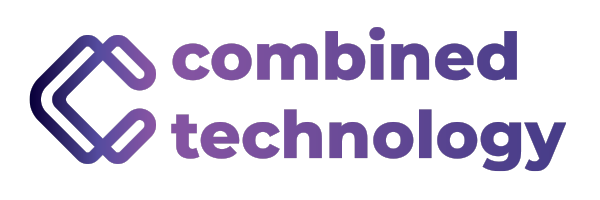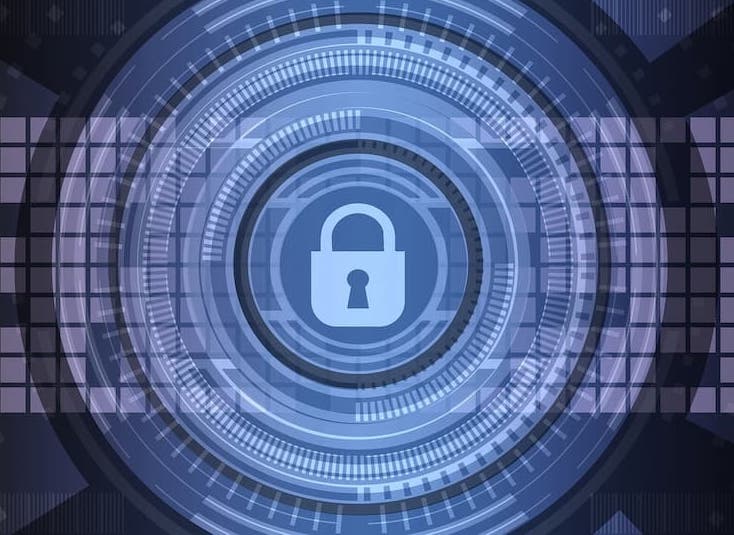As technology advances, so do the methods cybercriminals use to exploit vulnerabilities. Businesses of all sizes must stay ahead of emerging threats to protect their data, customers, and operations. From AI-powered attacks to quantum computing risks, the cybersecurity landscape in 2025 is more complex than ever. Understanding these trends and taking proactive steps to mitigate risks will be essential for maintaining security and compliance.
The Role of AI in Security Operations
Artificial intelligence is reshaping cybersecurity, with both defenders and attackers leveraging its capabilities. Businesses are using AI-driven security tools to detect anomalies, automate threat responses, and predict potential cyberattacks. However, cybercriminals are also employing AI to refine phishing campaigns, bypass traditional security measures, and launch automated attacks at an unprecedented scale.
The growing threat of AI-powered cyberattacks is evident, as 77% of companies have already faced AI-related breaches. Attackers are using AI to create convincing phishing emails, deepfake scams, and advanced malware that can bypass traditional defenses. This means businesses must invest in AI-driven security solutions that can detect and counter AI-based threats before they cause harm.
AI-powered cybersecurity solutions can help businesses stay ahead by enabling real-time monitoring, faster response times, and proactive risk mitigation. However, companies must ensure their AI tools are properly configured and continuously updated to adapt to evolving threats. While AI can enhance security, it should be used as part of a broader cybersecurity strategy that includes human oversight and rigorous testing.
The Cybersecurity Talent Gap
As cyber threats grow in complexity, the demand for skilled cybersecurity professionals continues to outpace supply. In fact, 2 out of 3 of organizations report a moderate-to-critical skills gap in cybersecurity. Many businesses, especially small and mid-sized ones, struggle to hire and retain security experts. This shortage leaves organizations vulnerable, as unfilled security positions can lead to delayed threat detection, misconfigured defenses, and gaps in incident response plans.
Businesses facing this challenge often turn to external IT security providers to fill the gap. Managed IT services offer access to experienced professionals who can monitor networks, manage security updates, and provide immediate incident response without the overhead costs of an in-house security team. By outsourcing cybersecurity, companies can strengthen their defenses while focusing on their core operations.
Critical Infrastructure Vulnerabilities
Critical infrastructure, such as power grids, healthcare systems, and transportation networks, is an attractive target for cybercriminals and state-sponsored attackers. Many of these systems were not originally designed with modern cybersecurity threats in mind, making them susceptible to ransomware attacks, data breaches, and service disruptions.
The consequences of an attack on critical infrastructure can be severe, potentially leading to economic damage, public safety risks, and operational downtime. Businesses that rely on critical infrastructure, including those in supply chains and logistics, must ensure they have robust security protocols in place to protect against disruptions. Strengthening network security, conducting regular vulnerability assessments, and implementing incident response plans can help mitigate the risks associated with these attacks.
Cloud and IoT Security Challenges
As more businesses move their operations to the cloud and integrate IoT devices into their workflows, the attack surface continues to expand. Cloud environments provide scalability and efficiency, but misconfigured security settings, weak access controls, and unpatched vulnerabilities can leave sensitive data exposed. Similarly, IoT devices—ranging from smart office equipment to industrial sensors—often have weak security measures, making them easy targets for hackers.
Security is the top cloud challenge for most organizations, with 81% of IT leaders considering security a major concern. Alarmingly, 47% of data stored in the cloud is classified as sensitive, yet less than 10% of enterprises encrypt 80% or more of their cloud data (Source). This highlights the urgent need for stronger security protocols in cloud computing and IoT environments.
Securing cloud and IoT environments requires a multi-layered approach that includes strong authentication, encryption, and continuous monitoring. Businesses must ensure that their cloud providers follow strict security standards and that IoT devices are regularly updated with the latest firmware and patches. Implementing network segmentation can also prevent attackers from gaining access to critical systems through compromised IoT devices.
Uncertain about which IT service model fits your business best?
Our team is here to help you navigate the options and answer all your questions so you can make the best decision for your business. Get in touch for a free assessment today!
Social Media Exploitation
Cybercriminals are increasingly using social media platforms to conduct phishing attacks, spread misinformation, and manipulate individuals into divulging sensitive information. Employees who share personal or work-related details online can unknowingly provide attackers with valuable intelligence that can be used for social engineering scams.
Businesses must educate their employees on the risks of oversharing information on social media and enforce security policies that limit exposure. Training programs on identifying phishing attempts, verifying suspicious messages, and using privacy settings effectively can help reduce the risk of social media-based attacks. Organizations should also monitor for impersonation attempts and fraudulent accounts that may be used to deceive customers or employees.
Quantum Computing and Cybersecurity
Quantum computing has the potential to break widely used encryption methods, posing a significant threat to data security. While mainstream adoption of quantum technology is still in its early stages, businesses must start preparing for the impact it will have on cybersecurity. If quantum computers become powerful enough to crack current encryption standards, sensitive information, including financial transactions and personal data, could become vulnerable.
To stay ahead, organizations should explore quantum-resistant encryption methods and begin assessing their long-term data protection strategies. Industry leaders and government agencies are already working on post-quantum cryptographic standards, and businesses should keep an eye on developments in this space to ensure their security measures remain effective.
Regulatory and Insurance Changes
As cyber threats evolve, governments and regulatory bodies are tightening cybersecurity requirements for businesses across various industries. Compliance with frameworks such as GDPR, CCPA, and industry-specific regulations is becoming more complex, with increased scrutiny on data protection practices. Organizations that fail to meet these requirements face financial penalties, legal liabilities, and reputational damage.
At the same time, cyber insurance providers are adjusting their policies to reflect the growing risks of cyberattacks. Many insurers now require businesses to demonstrate strong cybersecurity measures before offering coverage. This includes multi-factor authentication, regular security assessments, and incident response plans. Organizations must stay proactive in meeting both regulatory and insurance requirements to avoid gaps in coverage and compliance risks.
The Role of Managed IT Services in Cybersecurity
With cyber threats constantly evolving, businesses need a comprehensive approach to security that goes beyond basic antivirus software and firewalls. Managed IT services provide continuous monitoring, proactive threat detection, and expert guidance tailored to each organization’s needs.
By outsourcing cybersecurity to a trusted provider, businesses can:
- Gain access to advanced security tools and expertise.
- Ensure compliance with regulatory requirements.
- Improve incident response capabilities.
- Reduce the burden on internal IT teams.
Managed IT services help organizations stay ahead of threats while maintaining operational efficiency and data protection. With dedicated security professionals monitoring systems 24/7, businesses can focus on growth without worrying about cyber risks.
Protect Your Business with Combined Technology Tulsa
At Combined Technology in Tulsa, we provide tailored cybersecurity solutions to protect businesses from emerging threats. Whether you need cloud security, endpoint protection, or compliance support, our managed IT services offer the expertise and tools necessary to keep your organization secure.
Take control of your cybersecurity today. Contact Combined Technology to discuss how we can strengthen your defenses and prepare your business for the evolving threat landscape of 2025 and beyond.
Get in Touch with Us

Safeguard Your Business with Tulsa's Top Managed IT Provider
At Combined Technology, we provide a flexible, tailored approach to meet your evolving IT needs. Safeguard your business against emerging threats with our expert-managed IT services and customized cybersecurity solutions.





